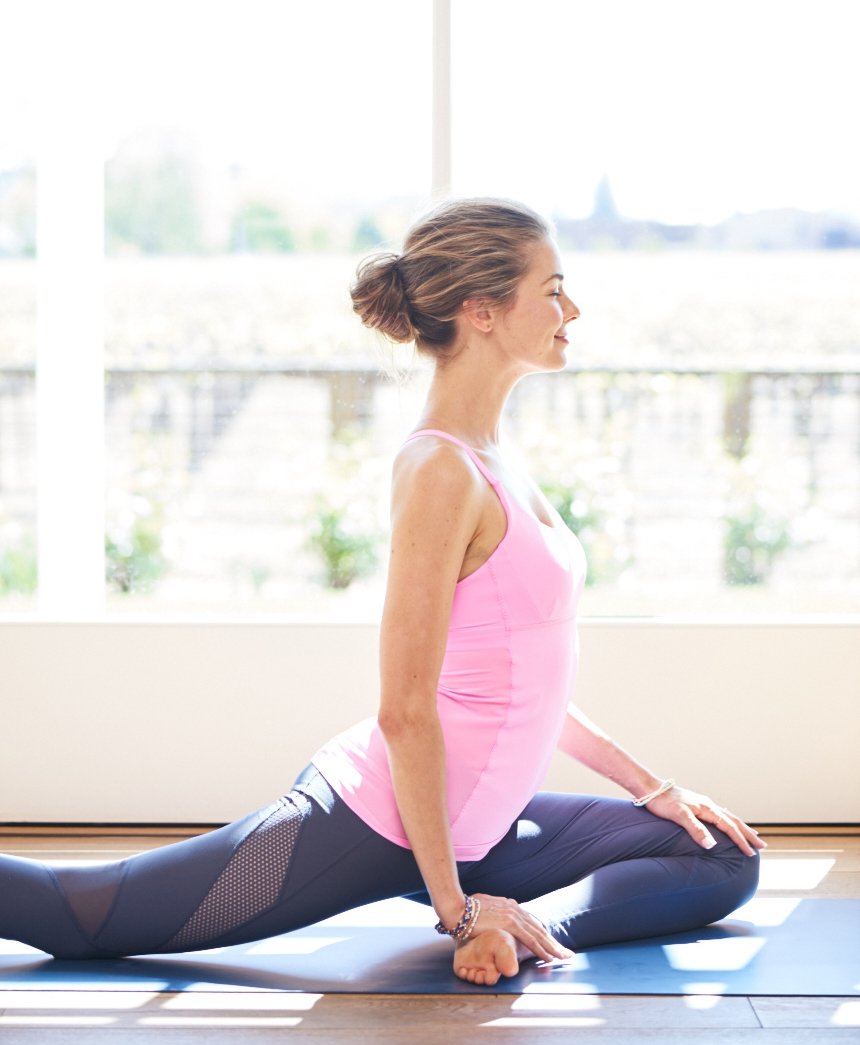
Sugar alcohols are the primary reason for a bloated lower stomach. The same can be said for carbonated beverages in general. The extra air in the drinks can contribute to extra air in the stomach, which causes an enlarged abdomen. Food allergies are another common culprit for bloating and indigestion, which can make your lower abdominal region “pouch” out.
Once you have analyzed the cause of stomach bloating, the task that lies in finding ways to overcome it, yoga can, to some extent, offer you a solution to the problem of stomach bloating.
Check out the exercises indicated and practice them regularly to overcome stomach bloating.
Back Stretch
Lie on your back and place your hands beneath your hips. Ease your hips and legs upward until your feet end up over your head. It’s OK if your feet don’t touch the floor as long as you’re still getting a good stretch. Take long, deep breaths and hold the pose for 10 seconds. Move your head around while you’re breathing to avoid neck cramping. Repeat 2-3 times. This position often releases some trapped air, which can be an instant relief when you’re trying to reduce bloating.
Shoulder Stand (Sarvangasana)
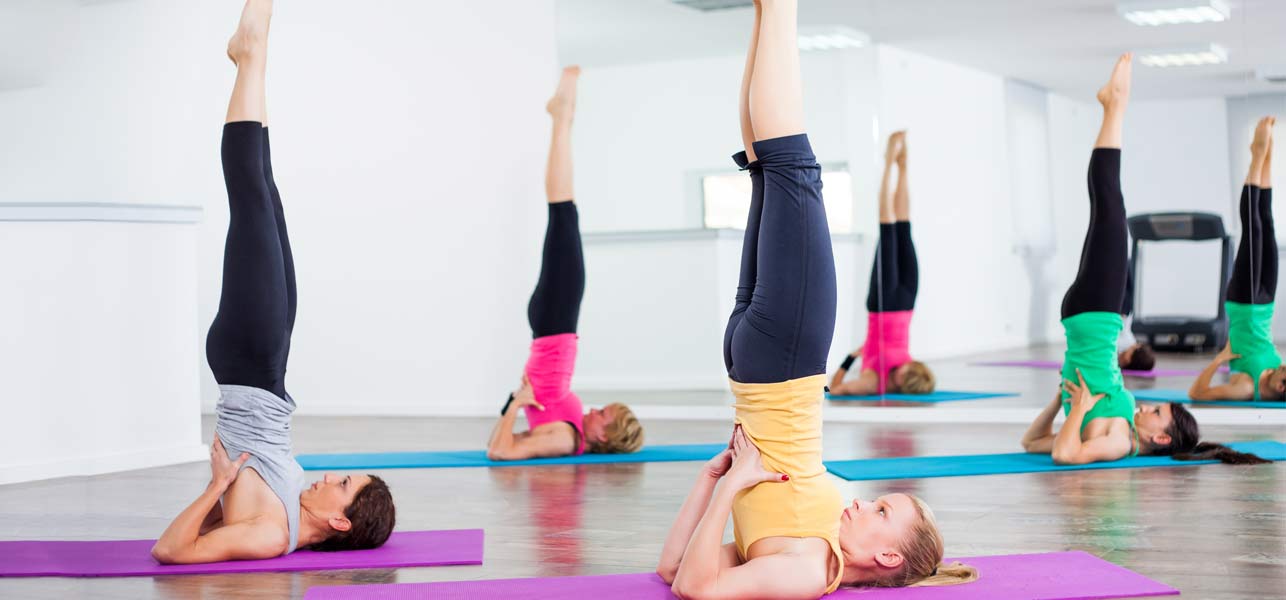
To start with, lie flat on the floor. The arms should rest along the sides, palms downwards. Exhale once, bend the knees, and bring them up towards the chin till the thighs press the stomach. Breathe normally. Now, exhale and, supporting the buttocks with the hands, raise the trunk till it becomes perpendicular to the floor. Now, your body will be supported by the back of the head, the neck, the shoulders, and the backs of the arms up to the elbows. To push the trunk into the vertical position, you will need to gradually move the hands towards the waist. The head continues to rest on the floor so that the trunk also becomes perpendicular to the head. Once it is correctly perpendicular, the chin will touch the chest. Now, raise the legs and make them vertical, in line with the trunk, with the toes pointing upwards. Breathe evenly, calmly and easily. Stay in the pose for a few minutes and feel the good it is doing you. To release the pose, gently move the legs downwards, release the hands, and let the body become flat again. You may also bring the legs down so that the knees approach the ears, and then gradually bring the legs down. Be gentle on your body. Never apply excessive stress. To start with, practice the initial position, drawing the knees towards the chin.
Release the pose gently.
Sitting Twist (Ardha-matsyendrasana)
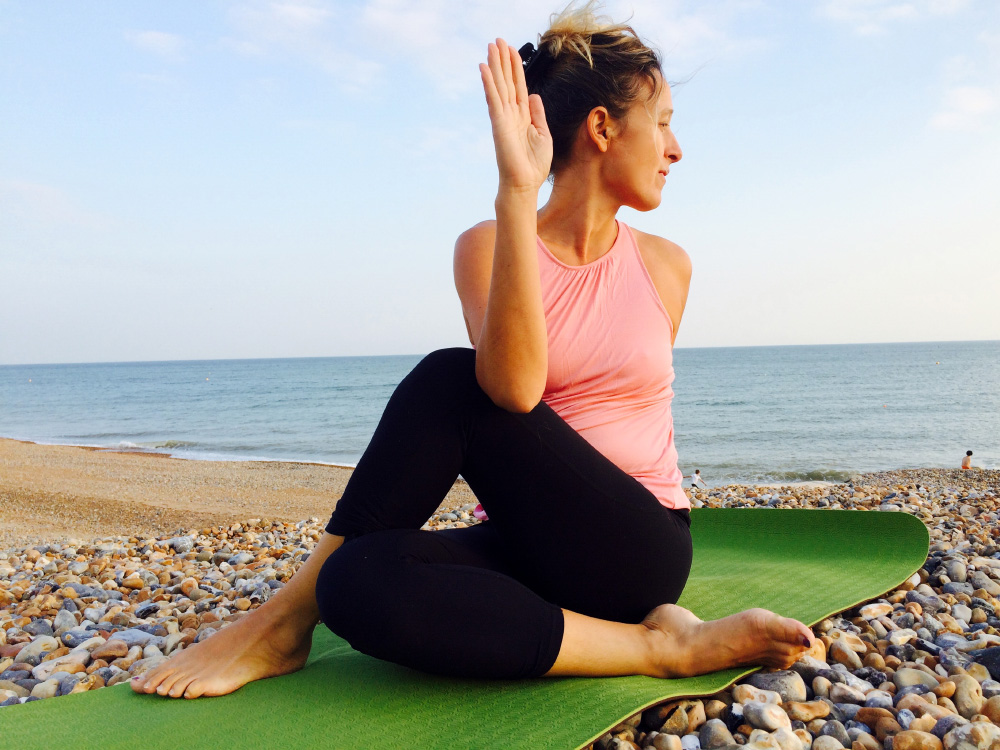
Sit extending both the legs together in front, hands by the side, palms resting on the ground. Fingers should remain together, pointing forward. Fold the right leg at the knee. Slowly set the right heel at the perineum. Now, folding the left leg, bringing it from above the right knee, place it by its side on the ground. The knee of the left leg should remain towards the sky. Now bring the right hand to the left side of the left knee. The left knee should remain at the left side of the right armpit. Now, straighten the right hand and hold the toe or ankle of the left leg. Twisting the body to the left side, look backwards, and place the left hand, bringing it from the back on the right thigh. Gaze toward the back. While returning to the original position, first release the hand from the thigh and turn the head forward. Now bring the back to the normal position after loosening the right hand. Bring the left leg in original position. Now bring the right leg also to the original position. Repeat it on the other side by folding the left leg first.
Standing Twist
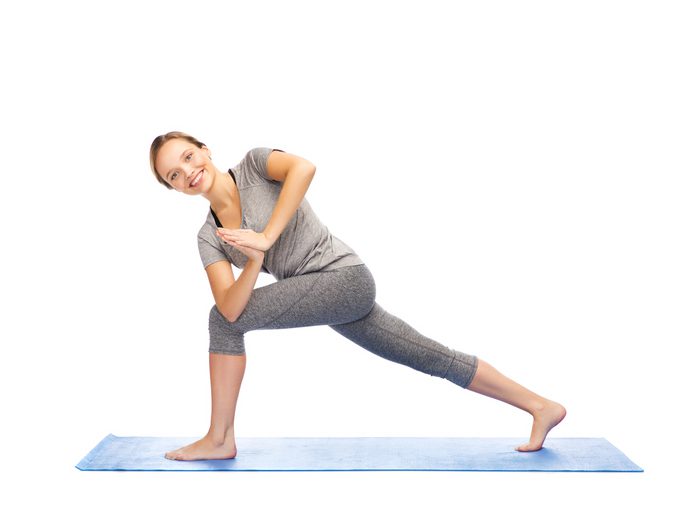
This is a slightly difficult method to reduce bloating than the sitting twist, so take it slowly at first. Step forward with your left foot and sink your hips until your left knee forms a right angle. Your right leg should be straight with the toes and ball of the foot planted firmly on the floor. (If this is too challenging, try lowering your right knee to the floor.) With your hands together and your forearms straight, place your right elbow on your left knee. (For a deeper stretch, place your right hand on the floor and reach toward the ceiling with your left hand, opening up your chest.) Take several deep breaths and repeat on the other side.
Child’s Pose (Balasana)
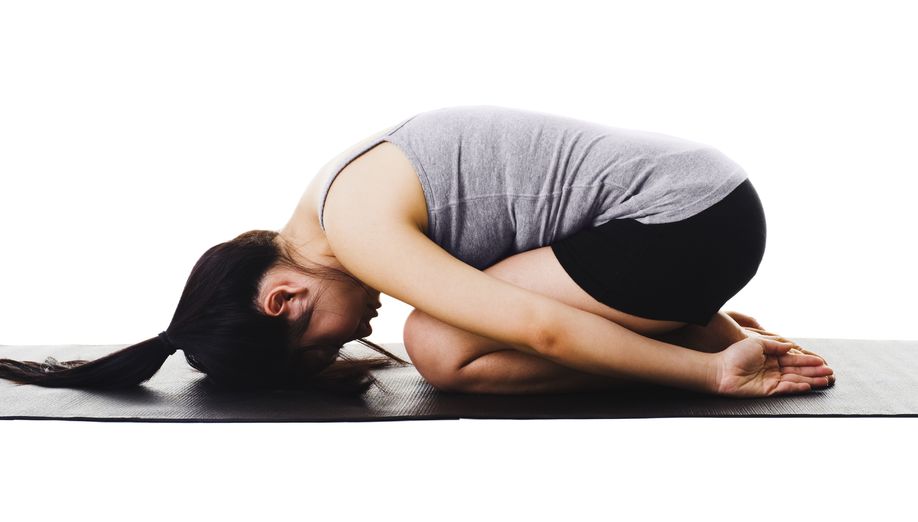 From Downward Facing Dog, drop the knees to the floor. Spread the knees as wide as the mat, keeping the big toes touching.
From Downward Facing Dog, drop the knees to the floor. Spread the knees as wide as the mat, keeping the big toes touching.
Bring the belly to rest between the thighs and the forehead to the floor. There are two possible arm variations: Either stretch the arms in front of you with the palms toward the floor or bring the arms back alongside the thighs with the palms facing upward. Do whichever feels more comfortable to you.
Wind Removing Pose (Pawanamuktasana )
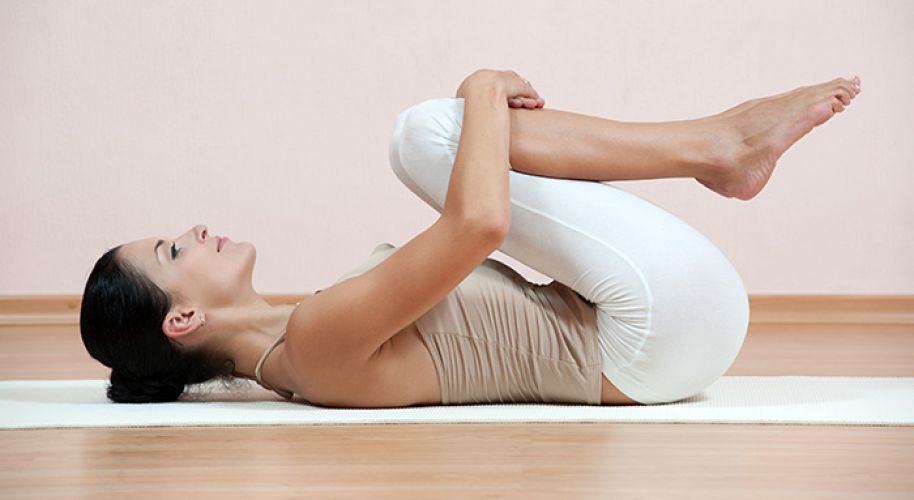
Lie down on your back and stretch both your legs. Now, leaving the left leg stretched on the ground, bend your right leg at the knee and bring the bent knee near the chest. Now inhale and press your bent leg on your chest with both hands, which should be interlocked for 90 this purpose. Keep the breath full in your belly and go on pressing the leg on it. Stay in this position for some time. Now, start exhaling, lift your head, and try to touch your bent knee with your nose. Inhale and bring your head back in the normal position; also, take the leg down and exhale. Concentrate on Maniptir Chakra. Repeat this process with your right leg and then with both legs
Check out the following eight foods accounting for about 90% of all food allergies:
- Milk
- Egg
- Peanuts
- Tree nuts (walnuts, cashews, etc.)
- Fish
- Shellfish
- Soy
- Wheat
If you feel you may be suffering, consult with an allergist.